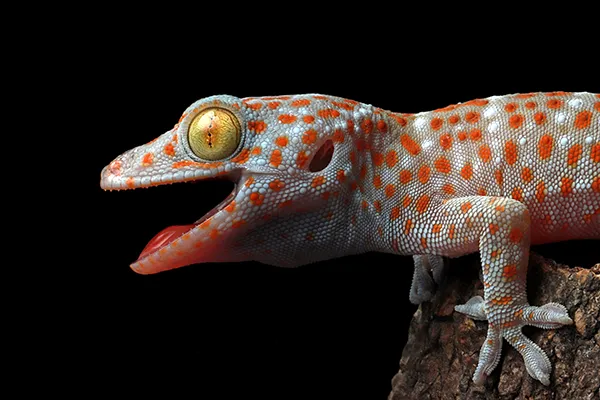


Gordon Burghardt Weighs in on Reptile Moods
Long dismissed as unintelligent, reptiles are emerging as cognitively and emotionally complex animals. A new study involving tortoises suggests that they also possess mood states.
The Scopes Trial Centennial: A Witness to Change—Reflecting on 50 Years of Science and Society
In this video, Alumni Distinguished Service Professor Gordon Burghardt shares his experiences from events that took place during the 50th anniversary of the famous trial, and offers insightful commentary on ongoing issues of science and nature.
Burghardt honored by Animal Behavior Society
Animal behavior captivated Gordon Burghardt as a boy, and over more than half a century at the University of Tennessee, Knoxville, his interdisciplinary research advanced ethology in areas including animal play, social behavior, communication, reptile behavior, enrichment, and animal cognitive abilities.
The Animal Behavior Society (ABS) recognized his outstanding lifetime achievement by awarding Burghardt the 2024 Distinguished Animal Behaviorist Award during its annual meeting in late June.
Fruit flies may enjoy taking carousels for a spin
EEB Alumni Distinguished Service professor Dr. Gordon Burghardt comments on the first documented example of locomotor play in an invertebrate. Read the article here: https://www.science.org/content/article/fruit-flies-may-enjoy-taking-carousels-spin
Press for Burghardt: Snakes that recognize whether they are venomous
Professor Gordon Burghardt has a new article out in Journal of Comparative Psychology with Akira Mori called, “Do tiger keelback snakes (Rhabdophis tigrinus) recognize how toxic they are?” (DOI: 10.1037/com0000075)
The findings of the article have been picked up by places like New Scientist. Tiger keelback snakes do not make their own venom; they store and use toxins from the food they eat. Individuals that have been fed a diet of toxic toads display more aggressive behavior when threatened, unlike their non-toxic brethren, who typically slither away. This raises the question of how the snakes know whether they are toxic or not.
Burghardt in the News
Professor Gordon Burghardt appears in the June 23 Knoxville News-Sentinel, in an article by Philip Kronk called, “Fear of snakes may date to evolution in Africa.”
Burghardt also appears on The Evolution Institute website, in a conversation with Kevin Laland, author of “Darwin’s Unfinished Symphony: How Culture Made the Human Mind.” They discuss adaptive trends and parallel evolution generated by niche construction. Associate Professor Joe Bailey’s research gets mentioned, too!
Discover Magazine Interviews Burghardt, Pruitt- UPDATE
The June 2017 issue of Discover Magazine has an article on play behavior in non-mammalian animals. Called “The Play’s the Thing,” it features interviews with Professor Gordon Burghardt and alumnus Jonathan Pruit (PhD 2010, Riechert Lab, now on the faculty at UC-Santa Barbara). The article references a paper published in 2012 that was written by Burghardt, Pruitt, and Riechert.
The article is now available online. Tennessee Today also has a story about the article
Summer Undergraduate Research Internships for EEB
Four undergraduate students affiliated with EEB received 2017 Summer Undergraduate Research Internships. The Office of Research awards these each year for undergraduates to work in a faculty mentor’s lab for pay. The award is worth $2500:
- Chandler Brown (mentor, Williams);
- Aaron Free (mentor, Burghardt);
- Terrell Carter (mentor, Schweitzer);
- Han Noh (mentor, Schweitzer).
Congratulations to you all!